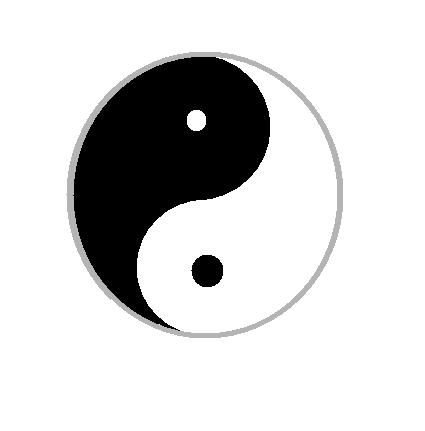Laozi's Dao De Jing 41-45 (老子道德經 41-45) from Administrator's blog

The Tao is hidden, and has no name; but it is the Tao which is skillful at imparting (to all things what they need) and making them complete.
第四十一章
上士聞道,勤而行之﹔中士聞道,若存若亡﹔下士聞道,大笑之。不笑不 足以為道。故建言有之:明道若昧﹔進道若退﹔夷道若纇﹔上德若谷﹔大 白若辱﹔廣德若不足﹔建德若偷﹔質真若渝﹔大方無隅﹔大器晚成﹔大音 希聲﹔大象無形﹔道隱無名。夫唯道,善貸且成。
Chapter 41
1. Scholars of the highest class, when they hear about the Tao, earnestly carry it into practice. Scholars of the middle class, when they have heard about it, seem now to keep it and now to lose it. Scholars of the lowest class, when they have heard about it, laugh greatly at it. If it were not (thus) laughed at, it would not be fit to be the Tao.
2. Therefore the sentence-makers have thus expressed themselves:— 'The Tao, when brightest seen, seems light to lack; Who progress in it makes, seems drawing back; Its even way is like a rugged track. Its highest virtue from the vale doth rise; Its greatest beauty seems to offend the eyes; And he has most whose lot the least supplies. Its firmest virtue seems but poor and low; Its solid truth seems change to undergo; Its largest square doth yet no corner show A vessel great, it is the slowest made; Loud is its sound, but never word it said; A semblance great, the shadow of a shade.'
3. The Tao is hidden, and has no name; but it is the Tao which is skilful at imparting (to all things what they need) and making them complete.
第四十二章
道生一,一生二,二生三,三生萬物。萬物負陰而抱陽,沖氣以為和。人 之所惡,唯孤、寡、不谷,而王公以為稱。故物或損之而益,或益之而損 。人之所教,我亦教之。強梁者不得其死,吾將以為教父。
Chapter 42
1. The Tao produced One; One produced Two; Two produced Three; Three produced All things. All things leave behind them the Obscurity (out of which they have come), and go forward to embrace the Brightness (into which they have emerged), while they are harmonised by the Breath of Vacancy.
2. What men dislike is to be orphans, to have little virtue, to be as carriages without naves; and yet these are the designations which kings and princes use for themselves. So it is that some things are increased by being diminished, and others are diminished by being increased.
3. What other men (thus) teach, I also teach. The violent and strong do not die their natural death. I will make this the basis of my teaching.
第四十三章
天下之至柔,馳騁天下之至堅。無有入無間。吾是以知無為之有益,不言 之教,無為之益,天下希及之。
Chapter 43
1. The softest thing in the world dashes against and overcomes the hardest; that which has no (substantial) existence enters where there is no crevice. I know hereby what advantage belongs to doing nothing (with a purpose).
2. There are few in the world who attain to the teaching without words, and the advantage arising from non-action.
第四十四章
名與身孰親?身與貨孰多?得與亡孰病?是故甚愛必大費﹔多藏必厚亡。 故知足不辱,知止不殆,可以長久。
Chapter 44
1. Or fame or life, Which do you hold more dear? Or life or wealth, To which would you adhere? Keep life and lose those other things; Keep them and lose your life:—which brings Sorrow and pain more near?
2. Thus we may see, Who cleaves to fame Rejects what is more great; Who loves large stores Gives up the richer state.
3. Who is content Needs fear no shame. Who knows to stop Incurs no blame. From danger free Long live shall he.
第四十五章
大成若缺,其用不弊。大盈若沖,其用不窮。大直若屈,大巧若拙,大辯 若訥。靜勝躁,寒勝熱。清靜為天下正。
Chapter 45
1. Who thinks his great achievements poor Shall find his vigour long endure. Of greatest fulness, deemed a void, Exhaustion ne'er shall stem the tide. Do thou what's straight still crooked deem; Thy greatest art still stupid seem, And eloquence a stammering scream.
2. Constant action overcomes cold; being still overcomes heat. Purity and stillness give the correct law to all under heaven.

The Wall